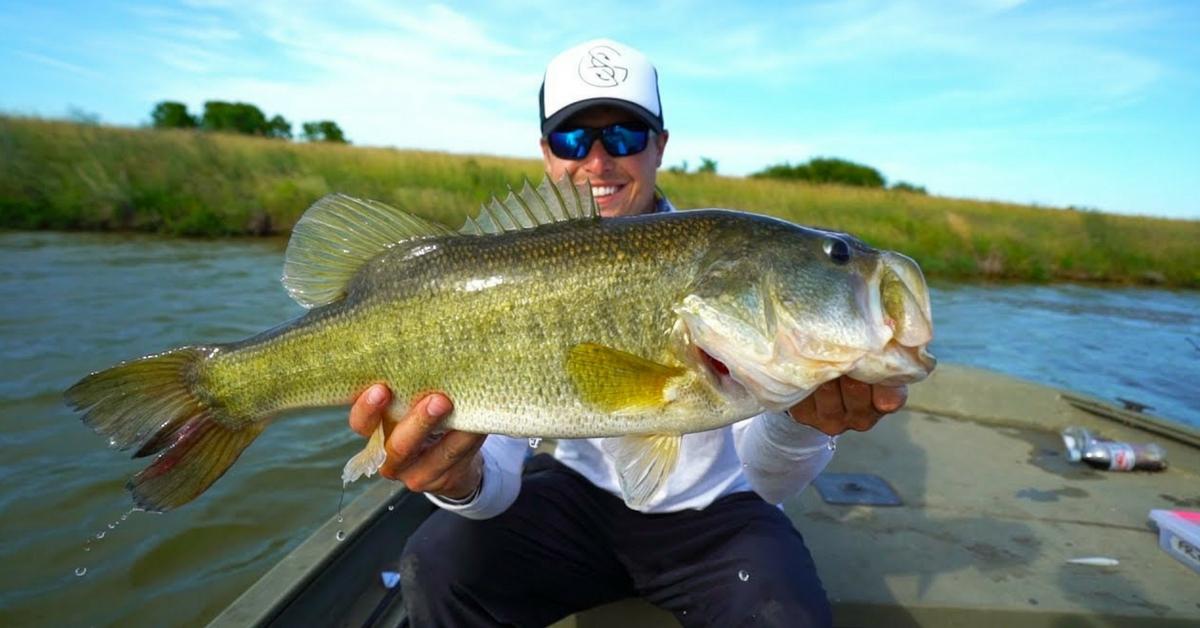How To Land Big Fish: Do's And Don'ts Of Fighting Fish
Why don't we have enough tips on how to land big fish? There are plenty of articles on where to find fish, what bass fishing lures to use, and how to predict where fish are going to be. There are far fewer articles on the mechanics of fishing once you’ve gotten a bite. This is surprising, since what happens from that bite on determines whether you’re going to be smiling for a fish pic or talking about the one that got away.In that spirit, we got with some of the best minds in the game and developed this simple list of do’s and don’ts for how to hook, fight, and land fish.
Do’s To Land Big Fish
Keep your rod in the proper position while fishing
The best hook sets come when you have maximum leverage, with both hands on the rod, and the rod held in the center of your mass. If you have your arms extended or otherwise off-center and a fish strikes, you can’t get leverage on your hook set and are much more likely to miss the bite. Concentrate on developing the muscle memory to keep your hands in the center of your chest whenever you’re fishing – so when you get bit you can drive the hook home.
Think about it beforehand
Different techniques have different hook sets, so plan for this before you make the first cast. For example, if you’re fishing a bottom-hugging bait that requires a sweep set, make sure there are no obstructions to the side that will impede your hookset. If you’re creek fishing, make sure there are no tree limbs overhead that will get in your way. A couple seconds of thought before you cast can land you a couple more fish per trip.
Reel calmly and consider your drag
Once you’ve got a fish hooked, the first rule of thumb is to not freak out. Your line, rod, and reel are all designed to be shock absorbers and make fighting fish easy. Let them do their job. Reel steadily if you can and let the fish tire. If you need to, back off your drag and let it do its thing.
Adjust your fight
Depending on where you’re fishing, you may have to fight a fish differently. Consider that as you start fishing. For example, if you are flipping heavy laydowns, it’s important to get the fish out of the snag first, so you need to apply heavy pressure right away to get the bass into open water. Conversely, with an open water situation like the Great Lakes, there is nothing to break off so you can really let your drag tire the fish before landing.
Use a dip net
As cool as it is to see tournament anglers boat-flip giant bass, you’re going to land more fish with a landing net than you’ll land without one. A landing net also prevents damage to your gear and your hands after you land big fish – as treble hooks from a thrashing fish have a tendency to end up in uncomfortable places.
Don’ts To Land Big Fish
Be jumpy
You’re better off taking your time and getting a good hook set than just rapidly jerking at the first sign of a tug. Learn how to “feel” with your rod tip, and if you detect a bite make sure you’re in good position before slamming the hook home.
Be afraid
In that same respect, there’s an old adage in tournament bass fishing that “hook sets are free.” This means that if you feel something weird, don’t be afraid to set the hook. Particularly when you’re just learning, bites can be difficult to feel so don’t be afraid to set if you feel something funky. Take the risk of looking goofy setting the hook on a log, it will be worth it to land big fish next time!
“Jerk and reel”
One of the most common mistakes rookie anglers make is that they jerk while fighting a fish. The number one enemy while fighting a fish is slack line. Just a moment of slack will cause a poorly hooked fish to pop off. When you jerk, you inherently give a moment of slack when you start reeling again. Instead, apply steady pressure and don’t give them any slack.
Forget the boat
Sometimes when fighting a fish it’s easy to lock onto the fight and forget your surroundings. In wind, current, or on a crowded waterway this can be trouble. Fish can wrap around other angler’s lines, the outboard motor, Power Poles, and any number of obstacles. Pay attention to your surroundings while fighting fish to try and avoid potential issues before they cost you the fish. You want to land big fish while also staying safe.
Kill the fish
Hot carpet, hard metal, and other things can be very detrimental to caught fish. Try and minimize damage to the fish by quickly unhooking them, and preventing them from flopping on the bottom of the boat or shore. Also minimize the amount of time they are out of the water. Doing so will allow the fish to successfully swim away, to be caught again in the future.
Updated May 7th, 2018 at 1:20 PM CT


